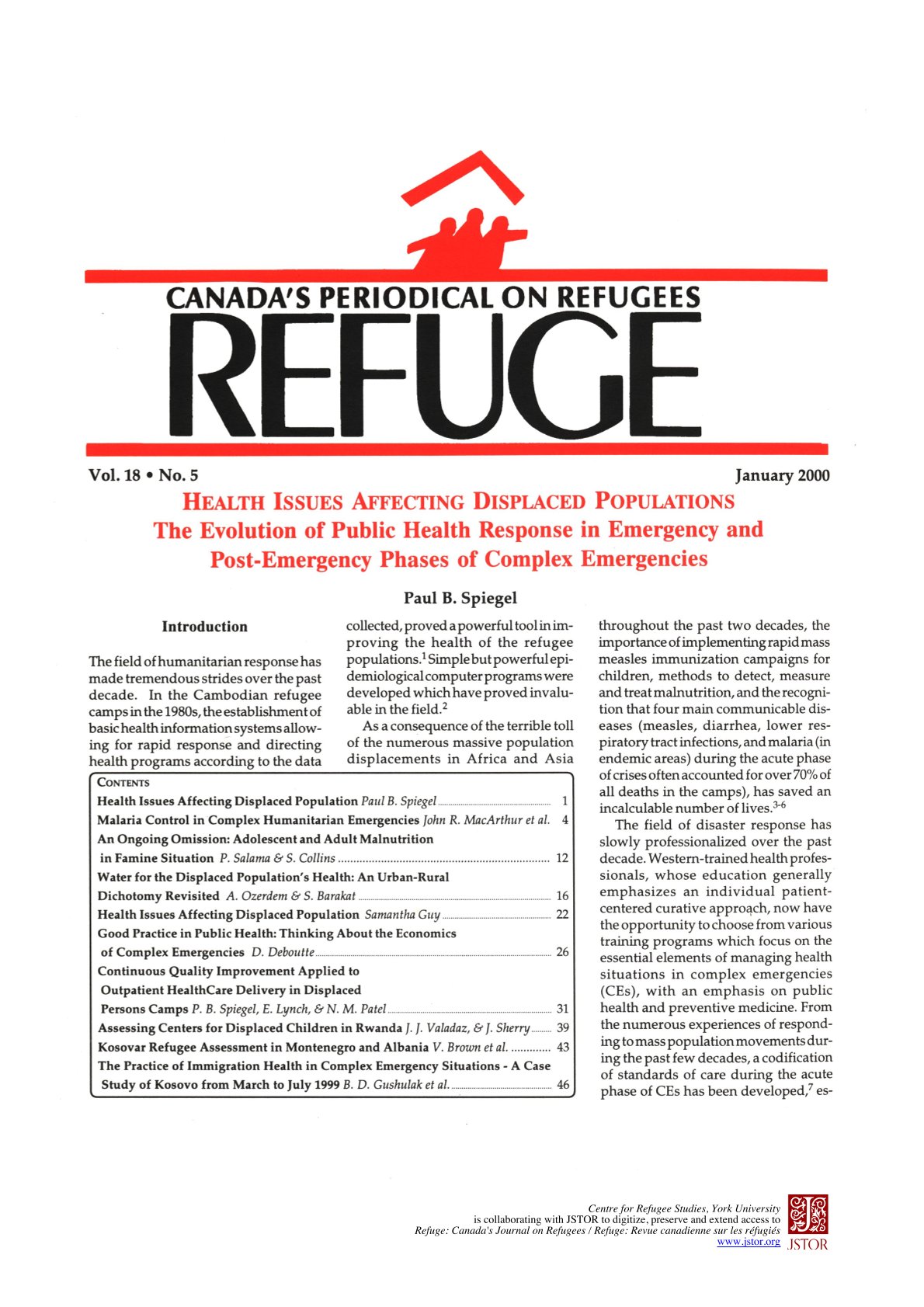The Practice of Immigration Health in Complex Emergency Situations - A Case Study of Kosovo from March to July 1999
DOI:
https://doi.org/10.25071/1920-7336.22053Keywords:
Kosovar refugees, Macedonia, health, complex emergencies, medical screening, health managementAbstract
The need to rapidly transport refugees, displaced as a result of evolving complex humanitarian emergencies creates challenges for those refugee-receiving nations that require formaI immigration medical screening of these populations. Balancing the need to expediently resettle the refugees with these legislative and regulatory medical requirements can be logistically and operationally difficult. During the 1999 Kosovo crisis, the Humanitarian Evacuation Programme from the Former Yugoslav Republic of Macedonia rapidly moved large numbers of Kosovar Albanian refugees to nations with existing formal immigration medical screening requirements. This paper describes the successful management and delivery of immigration health services during this complicated international event.Metrics
Downloads
Published
How to Cite
Issue
Section
License
Copyright (c) 2000 Brian D. Gushulak, D. W. MacPherson, H. Prochazka, M. M. Cooper

This work is licensed under a Creative Commons Attribution-NonCommercial 4.0 International License.
Refuge authors retain the copyright over their work, and license it to the general public under the Creative Commons Attribution-Non Commercial License International (CC BY-NC 4.0). This license allows for non-commercial use, reproduction and adaption of the material in any medium or format, with proper attribution. For general information on Creative Commons licences, visit the Creative Commons site. For the CC BY-NC 4.0 license, review the human readable summary.







